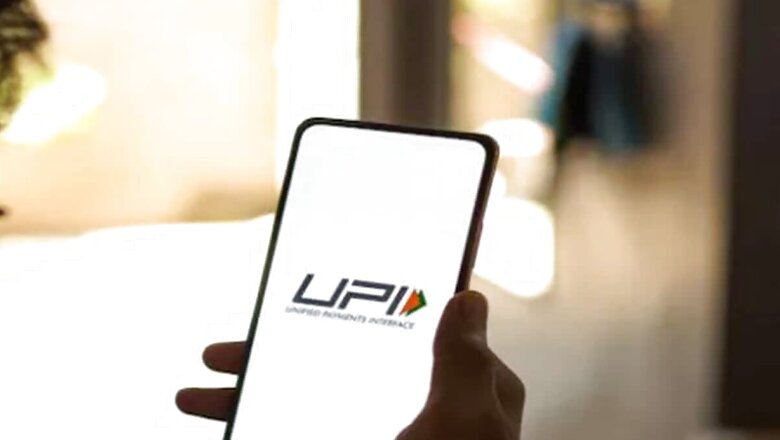
views
UPI merchant transactions of more than Rs 2,000 made via prepaid payment instruments (PPI) will carry an interchange fee starting April 1, 2023.
A recent circular issued by the National Payments Corporation of India (NPCI), using PPIs on Unified Payments Interface will attract interchange at 1.1 percent of the transaction value for transactions worth over Rs 2,000.
The NPCI circular had suggested that PPI charges be applied from April 1 for merchant transactions made using the UPI.
NPCI on Wednesday clarified there is no charge for the bank account to bank account-based UPI payments or normal UPI payments.
“The interchange charges introduced are only applicable for the PPI merchant transactions and there is no charge to customers, and it is further clarified that there are no charges for the bank account to bank account-based UPI payments (i.e. normal UPI payments),” it said.
Also Read: UPI Is Free And Safe! Customers Pay Nothing, Only PPI Merchant Transactions Pay Interchange Fee: NPCI
No interchange in terms of peer-to-peer (P2P) or peer-to-peer-merchant (P2PM) transactions between the bank account and the PPI wallet will apply. It means the fee will not be applicable for person-to-person transactions or person-to-merchant transactions between a bank and the prepaid wallet.
What Are PPIs?
PPIs are instruments that facilitate purchase of goods and services, conduct of financial services, enable remittance facilities, etc., against the value stored therein. PPIs are online wallets like BHIM, Google Pay etc..
Who Are The Issuers Of PPIs?
PPIs can be issued by banks and non-banks. Banks can issue PPIs after obtaining approval from RBI. The non-bank PPI issuers are companies incorporated in India and registered under the Companies Act, 1956 / 2013. They can operate a payment system for issuing PPIs to individuals / organisations after receiving authorisation from RBI.
Moreover, NPCI will review the stated pricing on or before September 30, 2023.
Once the additional charges come into effect, the PPI issuer will be paying around 15 basis points as a wallet-loading service charge to the remitter bank, a Moneycontrol report said.
A CNBC-TV18 report quoted broking firm Equirus as saying that “this could be the first step; we may incrementally see interchanges being announced on other modes of payments as well”.
It further said that nearly 65-70 percent of P2PM UPI transactions are worth more than Rs 2,000. “…there is adequate possibility for various stakeholders in the system. So, this should be seen positively for credit card companies as the risk of any cap on MDR actually reduces”.
In another development, after the Reserve Bank of India’s (RBI) latest move in the digital payments space to link RuPay credit cards to UPI, NPCI and leading payment aggregators have joined forces to support credit transactions on UPI.
NPCI has enabled aggregators like BharatPe, Cashfree Payments, Google Pay, Razorpay, Paytm, PayU and Pine Labs in order to enable merchant transactions through RuPay credit cards on UPI in the Indian market, NPCI said in a press statement.
Earlier, UPI customers were able to make transactions only through their bank accounts, overdraft accounts, and prepaid accounts. Now, the linking of RuPay credit cards to UPI will ensure that customers will no longer have to carry their credit cards with them at all times for payments.
Approximately 250 million Indians use UPI for their day-to-day transactions, and close to 50 million users have one or more credit cards. RBI’s move is set to combine the convenience of both by offering customers instant payment experience of UPI with the benefits of short-term credit and rewards offered by credit cards.
The linkage of credit cards with UPI will also lead to a rise in acceptability as UPI provides customers with more points of acceptance through the vast network of asset light UPI QR code. It is also beneficial to merchants, especially those in semi-urban areas, as card point-of-sale terminals are not widely available.
According to the RBI Payments Vision for 2025, it is expected that credit-based payment transactions are expected to grow by 16% year-on-year for the next four years. With India rapidly adopting digital payments for day-to-day transactions, the credit card-UPI linkage announcement will provide access to a hassle-free and smooth payments experience for individuals and merchants alike heading into the future.
Read all the Latest Business News here



















Comments
0 comment